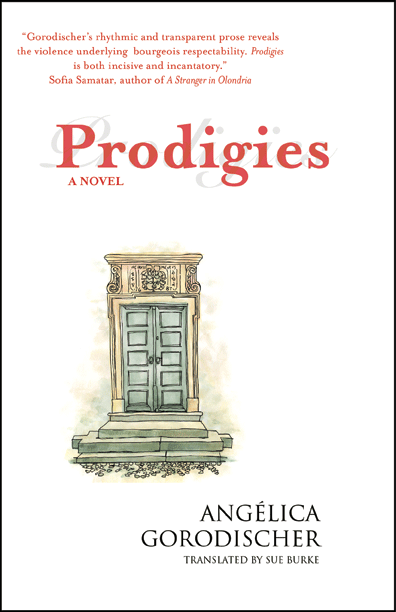
Sad news: Angélica Gorodischer, a prolific and award-winning Argentinian author, died on February 5 at age 93. Three of her books are available in English: Kalpa Imperial, translated by Ursula K. LeGuin in 2003; Trafalgar, translated by Amalia Gladhard in 2013; and Prodigies, translated by me in 2015.
After I finished my translation of Prodigies — an enchanted and enchanting novel — she and I exchanged a few emails. She told me she wrote the book almost as a dare. Here’s a translation of a portion of one of those emails:
“Prodigies is a difficult book. It was hard to write. It began as an argument with a colleague. She maintained that it isn’t possible to write a novel contrary to one’s own tastes, one’s own inclinations; against the grain, so to speak. I said that yes, not only could it be done, but from time to time it must be done, or at least it’s healthy to go against one’s own self and write as pure craft. No you can’t, yes you can, it’s impossible, don’t try to kid me, of course it’s possible, and that’s where it stood.
“But I was left on edge and decided that at some point I was going to write a novel, a full and complete novel, to prove what I had argued in that conversation. And sooner rather than later I set about writing Prodigies. And as I told you: it was difficult. It was difficult, but I liked it.”
She added, “I write in order to write, and that makes me happy.” As for me, “I hope that you’re well, you’re happy, and the goddesses are propitious to you.”
May those goddesses carry her gently to her rest.
***
All three of her books translated into English were published by Small Beer Press. At her passing, Gavin Grant, the publisher, wrote about meeting and working with Angélica Gorodisher.
***
Was Prodigies difficult for me to translate? Yes and no. The prose was lush, complex, and beautiful, and I focused on bringing those qualities into English. Each language operates under different “rules” for beauty, and I needed to translate with those differences in mind — difficult, but I liked it, too.
These are the opening words to Prodigies:
On the day Madame Nashiru arrived at the boarding house on Scheller Street, a brief tremor passed through the house, unnoticed by everyone except Katja. The foundations of the world did not shudder, plagues did not break out, first-born did not die, there were no catastrophes, the waters of the Genil River did not inundate a dozen towns, black death did not arrive at Addis Ababa, the sorcerers of Yauyuos did not dream about dogs with human heads, the walls of Nerja Cave did not crack, ships did not sink in the inlets of Baffin, volcanoes did not erupt, islands did not disappear, orchards did not suffer drought, the lintels of old cathedrals did not become besooted, cemetery guards did not worry needlessly, nor did police officers or transportation inspectors or sergeants or jailors or tax collectors or judges or executioners; but the house shook, and Katja, who was in the courtyard bending over a tin-plate pan, looked at the water and told herself that there are beings with wings and yet they hide them. She did not know what she meant by that, but she was used to those sudden obscure thoughts, so she was not frightened…

May Gorodischer rest in peace. Interesting about the background to Prodigies. I think the opening lines are fab.
LikeLike
Imagine a whole book like that…
LikeLike
What a fascinating skill to be a translator!
LikeLike
No amount of skill can help you translate a pun and keep it funny.
LikeLike
Pingback: Rules for beauty, Spanish vs. English | Sue Burke